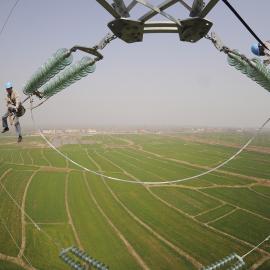To the Editor:
Based on hypothetical conjecture, Graham Allison ("Nuclear Disorder," January/February 2010) has fueled anxieties about the safety of Pakistan's nuclear arsenal.
Contrary to Allison's claims, international regulatory authorities have acknowledged the efficacy of Pakistan's comprehensive command-and-control structure, which has made the country's nuclear assets impervious to any threat, internal or external. Over the past decade, the Pakistani government has instituted many advanced security mechanisms, from tightened physical safety to technical controls on the nuclear weapons themselves. After the Pakistani nuclear scientist A. Q. Khan was discredited for his illicit dealings, Pakistan introduced a multilayered, foolproof system of internal monitoring.
The presence of militants on Pakistani soil, particularly on its western border, might raise alarms about nuclear safety. But even the most cursory knowledge of how nuclear states maintain their arsenals would make alarmists understand that extremists could not possibly come to possess a nuclear weapon, nor could nonstate actors acquire such a device or the requisite delivery system. Moreover, the Pakistani army has recently carried out successful operations in Malakand, the Swat Valley, and Waziristan, putting the most feared extremists on the run and destroying their safe havens.
Pakistan stands committed to nonproliferation and disarmament and has taken effective measures to meet its international obligations. The government's wide-ranging regulatory instruments prevent the proliferation of weapons of mass destruction to any state -- including, contrary to Allison's implication, Saudi Arabia. In addition, Pakistan continues to cooperate voluntarily with the International Atomic Energy Agency regarding its civil nuclear program.
The international community should recognize certain facts about Pakistan's nuclear program: it is based on minimum deterrence and self-defense, it has come of age and is here to stay, it was initiated and developed in response to regional asymmetry in both conventional and nuclear arms, and it is now a source of regional stability. It is in the interest of regional and global peace that Pakistan be admitted into the fold of nuclear states.
IMRAN GARDEZI
Minister for Press, Embassy of Pakistan, Washington, D.C.
